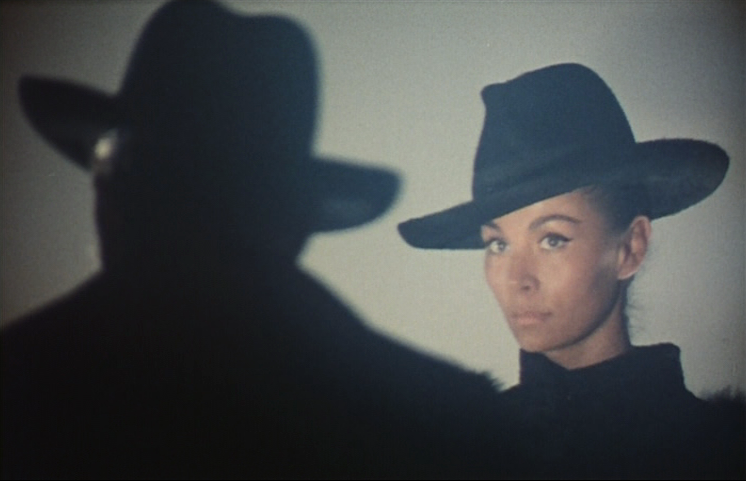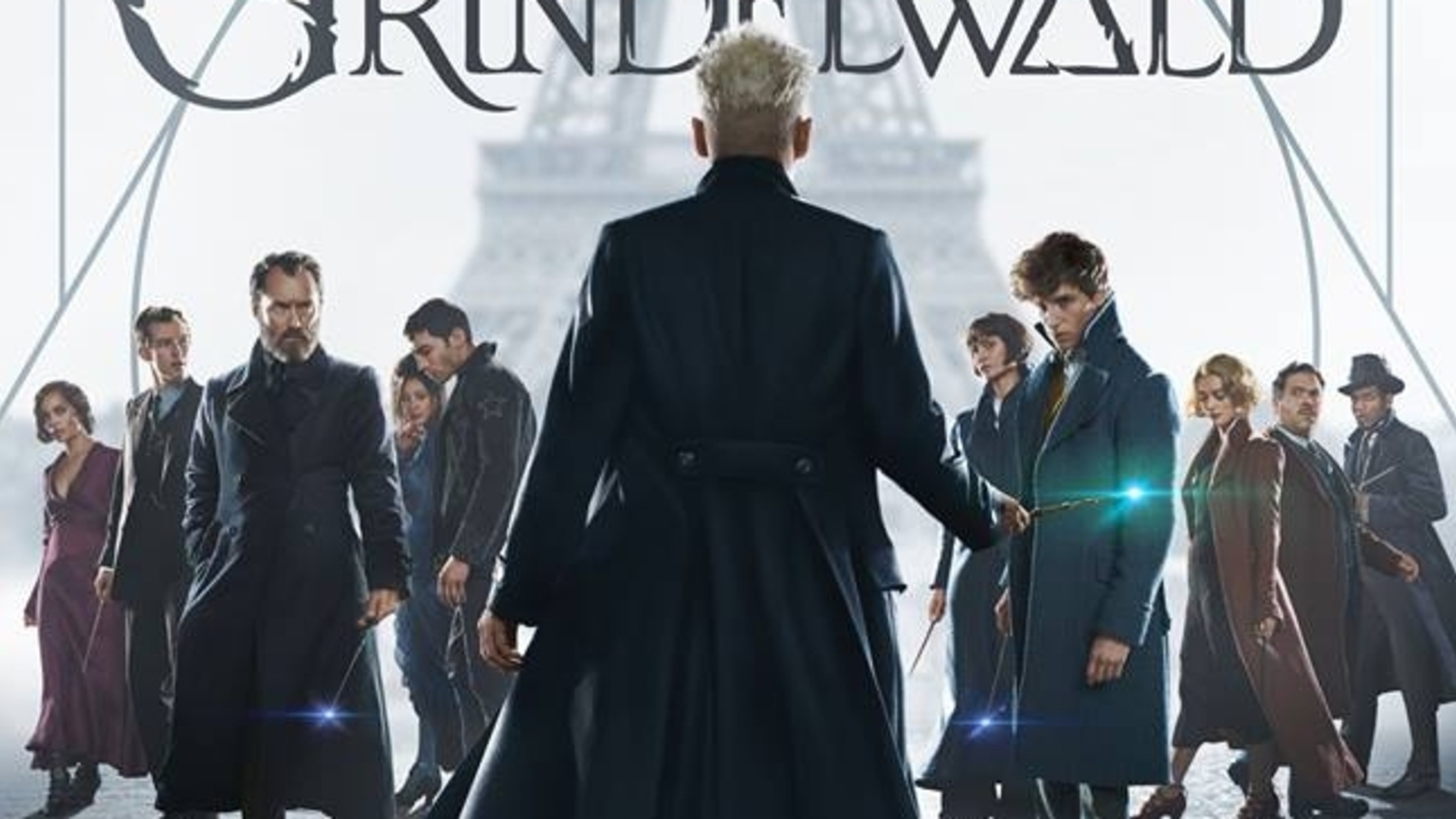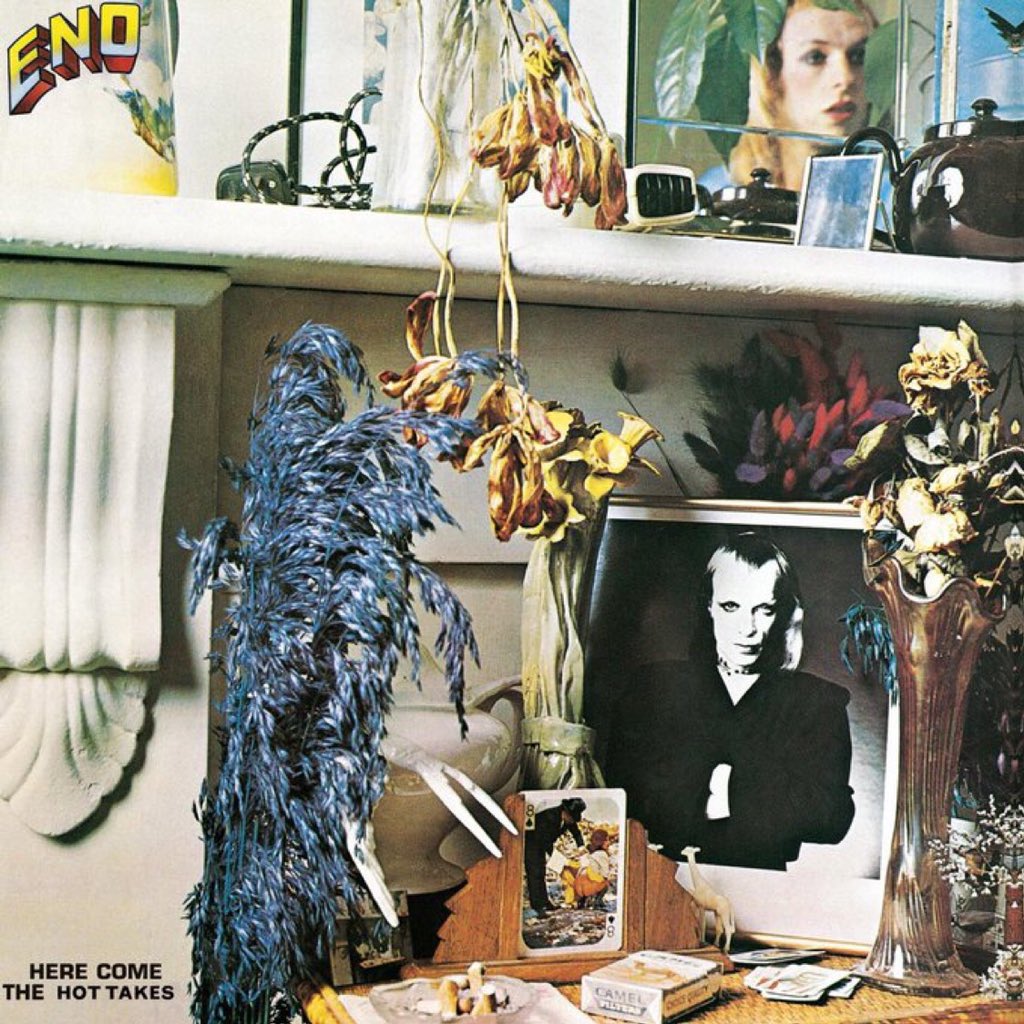Eruditorum Presscast: The Battle of Ranskoor av Kolos
For the last of our Series 11 podcasts, I’m joined by Niki Haringsma, author of the forthcoming Black Archive book on Love and Monsters. Have a gander here.…
For the last of our Series 11 podcasts, I’m joined by Niki Haringsma, author of the forthcoming Black Archive book on Love and Monsters. Have a gander here.…
So this is the Chibnall era. A season of such bland mediocrity that an episode that in any of the previous four seasons would have come in around level with the Gatiss episode comes in third in my final rankings; where the five episodes by the showrunner all add up to nothing and go nowhere; where the politics are so bad we got a pro-Amazon episode; where there’s no sense whatsoever of who or what this show is for other than being the BBC’s attempt at filling an hour on the Sunday night schedule. The only tangible advantage Chibnall has over Nicholas Briggs is that he cast a female Doctor. It’s soulless, pointless, and worst of all, it’s fucking boring.
And I mean, none of that is new to, wait, let me check the spelling again, The Battle of Ranskoor av Kolos. Which, incidentally, did not contain a battle. But at least while things were rumbling blandly along there was always some vague hope that it might, if not make good, at least go somewhere or have one moment somewhere that seemed to at least have something to say. But no. Instead we get Revenge of the Stenza, a villain who were perfectly fine as a counterpart to the Sycorax, the Atraxi, and rubbish robots from the dawn of time, but who as something that’s supposed to anchor any sort of arc are… stompy guys in leather? I mean, I suppose they’re no flimsier than the arc, but… I dunno. I honestly just don’t understand how you put this together and think that you’re doing something worthwhile with Doctor Who. Like, I remember in an interview after Twice Upon a Time Moffat talked about how every episode of the show has a moment where it’s clearly going to be the worst one ever and a moment where it’s clearly going to be the best one ever, and then it ends up somewhere in between. And while that’s surely an exaggeration for Knock Knock (and, in its own way, for something like The Magician’s Apprentice) it’s genuinely unthinkable to me that anyone in the course of making this looked at it and thought they were making a classic for the ages.
I mean, what am I even supposed to say about this? Its dramatic tension was “will the white man take revenge over his dead wife?” Its sense of conviction behind this is “if you kill the guy who genocided six planets you’re just as bad as he is,” and sealing him in a stasis pod for supposedly all eternity is somehow morally preferable. It had Mark Addy running around to conveniently remember things when they needed to be exposited. It still doesn’t know what the fuck to do with Yaz. It’s full of macguffins that don’t go anywhere, doing things like a whole “we have to take the inhibitors off” routine that just goes nowhere. Its biggest idea is “religious faith is dangerous and easily corrupted,” and it can’t even sustain that through the final scene. …
 Nice new bit of audio content for you today, mainly on the subject of guys called Orson.
Nice new bit of audio content for you today, mainly on the subject of guys called Orson.
From the Wrong With Authority stable, a commentary track for Orson Welles’ undervalued late masterpiece F for Fake, featuring myself and Daniel Harper. Download or listen HERE.
This commentary is basically a spin-off from an episode of They Must Be Destroyed on Sight in which I guested to chat about the same film – here. TMBDOS also recently did an episode on Welles’ finally-completed final film, The Other Side of the Wind, here.
Plus, we recently released a podcast in which Daniel and Kit chatted about Orson Scott Card’s Ender’s Game, and somehow managed to find new angles on it, despite it being one of the most discussed texts on the internet. Download or listen HERE.
Also, if you haven’t listened to the Wrong With Authority’s third ‘Trumpism’ episode, recorded after the mid-terms, but feel like subjecting yourself to five hours of our self-therapy, that’s here.
On the subject of Wrong With Authority, we still have two great new episodes in the can, being edited, and slated to be released soon (hopefully). There’s our next proper full WWA episode, hosted by Daniel this time, which will tackle D. W. Griffiths’ racist alleged-masterpiece of early American silent cinema Birth of a Nation, and a Consider the Reagan commentary on James Cameron’s The Terminator. Holly joins the team for both. Look out for those.
Speaking of Holly, people should definitely check out her new seasonal podcast series So Here It Is, in which she is joined by a succession of guests to chat with her about the tracks in the British Christmas music canon. One of the guests who has already been on is our friend Andrew Hickey, whose own new podcast series, A History of Pop Music in 500 Songs, is another absolute must.
(Oh, and I haven’t forgotten that I was meant to be reposting the Doctor Who commentary tracks I recorded with El. I’ll get back to that, probably in the new year.)
In other me-news, I’ve recently had something of a posting spurt over at my Patreon, and people who sponsor me for as miniscule a goddamn pittance as one measley dollar a month goddammit can exclusively access forthcoming posts of mine (fucking looooong ones too) on things like the TV show Legion (which I’ve perversely decided to find fascinating), Doctor Who and Brecht’s ‘Epic Theatre’, and Marx’s theory of capitalist crisis… as well as an audio snippet from the WWA episode we did on Anonymous in which me and the gang get drawn into a little chat about the ‘New Atheists’.
…
I’m joined this week by Rachael Stott, artist on Titan Comics’ Thirteenth Doctor comic, for a wide-ranging conversation that centers on It Takes You Away. Thanks so much to Rachael for agreeing to stop by our weird little show. Have a listen here.…
Delightful, but it’s impossible to look at this fact without noting that this is because it largely eschews the tropes of the Chibnall era in favor of being a Doctor Who story. Indeed, to stir the obvious and very tempting pot a little more, this is delightful because it has a relationship to the Moffat era other than studiously avoiding everything about it. It is not that this feels like a Moffat-era story, although it certainly wouldn’t have been out of place within Series 10. (Imagine it instead of Lie of the Land for the narrative job of dealing with Bill’s mother.) But it feels like Doctor Who that has actually seen the Moffat era, taken on board the sorts of things it discovered the show could do, and moved on. In feels like a story that belongs to that moment where we had Mathieson, Harness, and Dollard all turning up every season to do something interesting.
At the heart of this is an investment in making sure the nature of the story actually shifts in meaningful way. Haunted house horror (done, it must be said, with a pleasantly new coat of paint) gives way to a bewildering but evocative fantasy sequence in some magic caves, at the end of which we find a sentient anti-universe that I’m pretty sure is Urizen, but that’s another essay. At each turn there’s a new set of rules to figure out, a new set of genre conventions, and new stakes. But in a season that has been fixated on the procedural, here we have an episode that is eager to embrace Doctor Who’s capacity to go “no, this.” The Doctor’s leap to identifying the Soletract is delightfully unelaborated on. The basic ideas are huge “revise your basic Doctor Who cosmology” juggernauts that nevertheless feel reasonably-sized and accessible when they land. And there’s a frog on a chair at the end of it.’
But for all that this is rooted in the Moffat era’s unapologetic embrace of the logic and iconography of fantasy over science fiction this equally clearly isn’t a post-Moffat story. For one thing, the idea that the universe would be structured like this—that a passage through a mirror would lead to a deadly cave where you have to make bargains for your life, and on the other side of the cave is a sentient anti-universe that’s secretly a frog—is just taken for granted, as opposed to being treated as something that the viewer should appreciate the cleverness of. As a result, the show finds itself willing to revel in the strangeness of things instead of preening about them. It becomes “oh, of course the world is this weird and unsettling,” which is an interesting point to hit.
On top of all of this, it knows how to use its characters. Graham and Ryan are both used effectively, put in positions and roles that are tailored to who they are. Yaz is still a plot function, left to perform the emotional intelligence role of the standard new series companion in a show where the Doctor is perfectly capable of that now, but on the whole the supporting cast is better utilized than we’ve ever seen.…
 SPOILERS / TRIGGERS
SPOILERS / TRIGGERS
I’m going to generally assume you’ve seen this film and the previous one.
*
It is entirely apt that the poster for The Crimes of Grindelwald features a crowd of people wandering about looking confused; it’s both an apt depiction of the film and of the audience on their way out of the cinema.
An even better encapsulation: the sinking of the Titanic features, briefly, as a throwaway and perfunctory period reference, in a flashback scene in the middle of an infodump, part of the resolution of a pointless subplot… and nobody asks why the wizards on board didn’t stop it sinking.
Bluntly, this film is a mess. The plot flaps around, bifurcating into dead end after dead end. Things are set up and not paid off. When the payoffs do arrive they are sudden, arbitrary, and unsatisfying. There are lots of events but nothing really happens. Nothing is achieved. Every time you think progress might be made you find yourself stuck in a new subplot surrounded by characters who are multiplying around you like those cursed goblets in the final Potter film.
The first Fantastic Beasts movie had a more than incipient case of this, with the subplot about a plutocrat Jon Voight and his two sons, on top of the subplot about witch-hunters, and the plot about Grindelwald in disguise hunting a powerful cursed child… all on top of the stuff about Newt getting entangled with new friends and local magical authorities in 20s New York while trying to recapture the magical creatures that escaped from his case. This last would’ve made a perfectly entertaining little movie all by itself.
The main attraction of the first film – the likeable main characters; played by a uniformly charming cast – is squandered. The core cast do their best but they get very little time together, and even less in which they can have fun. The mood is dour compared to the first film. These stories about people with magic wands who conjure bats made of bogeys at each other are getting Dark and Serious again.
The colour pallette has been drained correspondingly. The first film allowed us a bit of sunlit sepia in 20s New York; this gives us 20s Paris almost in monochrome. Just as everyone is starting to snap out of that trend for washed-out colours and oppressive shadows, David Yates is digging his heels in and making Wizarding World movies the same murky way he shot Half-Blood Prince. Some of the production design is nice, especially the art nouveau interior of the French Ministry of Magic – even if it’s always a bit too evident in advance which era cliches the production designers will give a perfunctory magic twist.
But the overall grey uniformity of the film – also mirrored in the poster – is fitting for such a lifeless experience. A lot of effort is expended seemingly just to get new characters in place ready for future installments. They’ve tried to cram lots of set-up for the next movies into this film, almost as if they realised they came perilously close to telling a self-contained tale last time.…
 Join El and Annie Fish (whose delightful Patreon is here) for a discussion that is at times about The Witchfinders. Listen here.…
Join El and Annie Fish (whose delightful Patreon is here) for a discussion that is at times about The Witchfinders. Listen here.…
The cynical account would be that this avoided endorsing the idea that witch hunters had some valid points, and so is within the context of the Chibnall era borders on being a triumph. The more considered account would be that this retains many of the Chibnall era’s most annoying tics, but generally de-emphasizes them while succeeding at finding some new spins on old standards, which is to say that it works out more or less like the best case for the era.
At its heart it offers “what if spooky Doctor Who but with Alan Cumming camping it up throughout. The flaw here is that there’s not really a reason for these things to combine; King James’s arrival is only vaguely motivated and the plot really doesn’t particularly need him. His only role seems to be to keep the script from just being a kind of dreary mud zombies story. But while there’s a sloppiness to how Cumming is worked into the episode, he’s blatantly the best thing about it. Doctor Who works off of contrasts, and the gloomy folk horror of the plot along with Cumming’s wanton consumption of the scenery is an effective one. That it’s thinly justified isn’t a huge issue; something is always thinly justified in a fifty minute episode.
More to the point, the mud zombies kinda needed the help. They’re not bad, but it’s telling that their name, history, and plan are introduced and then dealt with inside of the last ten minutes, and that this, while slightly jarring, does not really feel like it detracts from them. They’re very “standard Doctor Who stuff,” and their abrupt reversion from spooky atmospherics to a completely standard explanation for this sort of thing is fine so long as they’re functioning as a platform for other things to happen. So the story needs a King James of some sort.
Thankfully, the King James it goes with is delightful. Doctor Who fans have, of course, known that Alan Cumming fits well with Doctor Who stuff since 1993, but at last we have him in the series proper. But he’s bolstered by the bold decision to have King James be, to put it bluntly, fucking terrible. The ideology of hero worship is probably the biggest of the millstones around the celebrity historical, and throwing the Doctor with a historical figure who’s revealed to be a complete shit is tremendously refreshing. Cumming, meanwhile, is capable of taking a character whose every trait is negative and making him entertaining without any redemption arc whatsoever. An episode built entirely around him would probably be annoying, but balancing him with mud zombies is exactly the sort of contrast that makes good Doctor Who, and ultimately if you stick the result you can handwave the setup.
This also marks the first time anyone has thought to handle Jodie Whittaker by giving her a talented co-star and letting her have a bunch of big scenes with them. While still waiting for an iconic hero moment, the exchange with King James when she’s tied up is easily her best scene this season, followed, really, by the scene of her about to be drowned.…
I’m pleased to announce that I’ve set up an Eruditorum Press Discord server. If you’re not familiar with Discord, it’s a chat app originally designed for use by gamers, but that has spread to all sorts of uses and is apparently the hot thing with The Kids These Days. So if you’d like a place to discuss The Witchfinders before my review goes up later in the week, or just a place to hang out and talk about any number of topics with a pretty cool community, you can join the server via this link,
If you’ve never used Discord before, you’ll want to download the program itself first.
Enjoy.…
This week I’m joined by Deb Stanish of the Verity! podcast and Mad Norwegian’s delightful anthology Chicks Unravel Time to talk about the stunning mess that is Kerblam! Because obviously she’s just your go-to person for things with exclamation points in them.